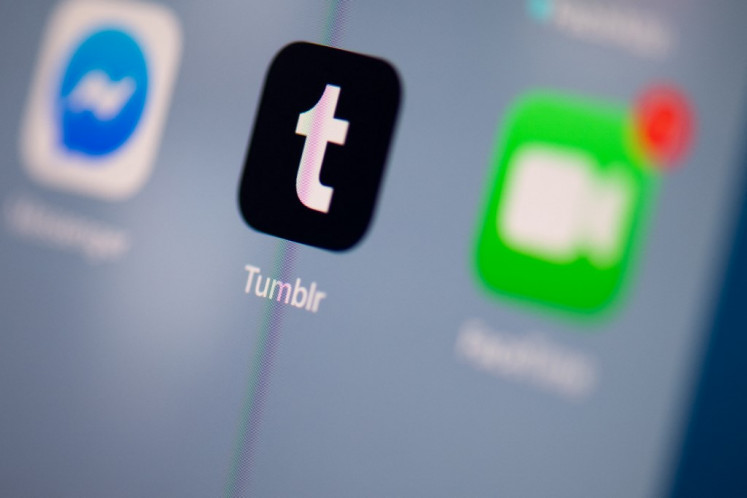November 28, 2022
JAKARTA – As former Twitter employees speak up about the possibility of the social platform’s collapse, its users talk about the prospect of moving out. Last Friday, Twitter users began crying out,
saying goodbyes and ironically joking around as if it was their final days of seeing each other. For many, the possibility of the prominent social media platform shutting down was either something to be upset or joke about.
On Nov. 18, senior and former employees at Twitter headquarters publicly stated that, due to the lack of employees agreeing to Twitter’s new, controversial leader Elon Musk’s ultimatum of accepting “hardcore” work, many of those employees have left the social media enterprise. This became one of the factors that led to the predictions that Twitter’s operations would break down overnight.
The social platform’s doomsday did not come. Currently, the site is still up and running. But the general fear that the beloved (and also hated) social media site, which has generated prominent public discourses and opinions over the last decade, would break down remains among its users. A site reliability engineer also predicted to the MIT Technology Review a week prior that a collapse might happen gradually, giving it six months before more problems surfaced.
Many users are scrambling to look for other social platforms – whichever they deem fit.
“Twitter is part of my life. I don’t know where else to go,” 23-year-old freelance translator Fadhila Auliyaa Rahma said to The Jakarta Post on Nov. 18.
Others have started posting their Instagram handles so their followers can find them there. Some have already gone onto different platforms, like the previously popular, fandom-oriented Tumblr or the recently rising Mastodon.
“I tried Mastodon back during the [United States] presidential election because Twitter was down at one point,” Fadhila said. “But it felt awkward [to use], maybe because I wasn’t familiar with its user interface.”

For the people: A screenshot of the recently-popular social network Mastodon taken on Thursday shows its promise to present a ‘radically different’ platform devoid of corporate-funded contents. (Mastodon/Screenshot) (Mastodon/Screenshot)
Other sources of news (and fun)
Elon Musk, Tesla leader and one of the wealthiest people in the world, had been embroiled in drama during Twitter’s buyout, initially backing out of his deal to buy the company and now having paid a fortune to become its owner. One of his goals was to apply rules that strengthen “free speech,” tweeting that comedy “is now legal on Twitter” and unblocking right-wing figures like former US president Donald Trump, who was suspended from the platform for “incitement of violence”.
But Elon’s following weeks as Twitter’s owner has only led to a spike in racism by nearly 500 percent, identity fraud and misinformation, which have caused division and backlash even from its employees.
And yet, the social platform still stands and remains where news and discourses bloom and boil.
“Twitter is essential for me as a journalist,” Judith Aura, a lifestyle reporter at Kumparan Woman, told the Post on Nov. 18.
“Everything that’s happening and trending, it’s on Twitter. I find out what I want or need to write from Twitter. It keeps me informed about many things, from occurrences around the globe to simple memes which can be useful for my job,” she elaborated.
Like Fadhila, Judith has been on Twitter since around 2010, using it initially to connect with her schoolmates and, later on, for “fangirling [and] ranting about everything”.
“I haven’t ventured out of Twitter and looked for other alternatives, so I don’t know how promising sites like Tumblr or Mastodon would be,” she said. But as a fangirl, she is familiar with the South Korean idol social app Weverse.
“I’m thinking of using Weverse more to connect with fellow [BTS fans] ARMYs and BTS,” she said.

Journalistic needs: Judith Aura, pictured in October at Kumparan’s head office, researches newsworthy stories, most of which are sourced from Twitter. (Courtesy of Judith Aura/.)
23-year-old Naya, a private sector employee from South Tangerang, was also aware of the grim news of Twitter and was thinking of other social platforms to interact with her friends.
“Maybe I’ll wait for [cofounder and former Twitter CEO] Jack Dorsey’s new social media site Bluesky,” she said to the Post on Nov. 18. To this day, there is still no announcement when Bluesky will run.
“But if you ask me what platforms I would use if Twitter’s gone, I would most probably go to Tumblr because of the huge amount of my fandom’s content,” she laughed. “I only have an Instagram second account for close friends, so I don’t use it that often,” Naya added, not liking the picture-based platform that much.
For programmer and data engineer Helmi Aziz Muhammad, he would prefer going to more Discord servers to keep up with anime content. He also would look into Reddit more for news.
“Often, something interesting pops up on my [Reddit] home [timeline]. As long as you join the right subreddit, you can get a lot of news,” Helmi said.
A subreddit about everything Indonesia called “r/Indonesia,” he said, has more or less similar news that appears on Twitter or Facebook. “Although I don’t know if it would still be a good news source if Twitter collapsed.”
Asked about the possibility of it going down, Helmi as a software developer, related to the concern of many analysts and former Twitter staff online.
“Elon has fired and made things hard for senior engineers with deep institutional knowledge of Twitter. To replace one developer with another developer is not as easy as replacing one janitor with another because every software works differently,” he said. “So, at some point, I think it will collapse.”
Replaceable?
Regardless of its doomed nature – if things remain unchanged inside Twitter’s headquarters – some users seem hesitant to move out and look for another social platform.
“Twitter is one of the fastest sources of information, where rumors can grow into confirmed viral news,” Fadhila said. “Nowadays, people can quickly look for help on Twitter, like looking for a missing person or making a case previously ignored go viral.”
She reluctantly said that if her fandom moved out to Mastodon, she would follow them there. On the other hand, Judith would stay on Instagram – her second-most favorite social platform.
“I’d also try to find the best apps to help me look for trends – [I will] need all the help for my daily job as a journo,” she said.
Meanwhile, Naya said that Twitter’s word-based system made it easy for her to use.
“It’s just fun to talk to yourself, stalk people’s profiles and look for niche content via keywords – something that we can’t do on Instagram,” she said.

Fandom heaven: The logo of the United States social network application Tumblr is seen on the screen of a tablet on July 24, 2019. (AFP/Martin Bureau) (AFP/Martin Bureau)
Helmi also championed Twitter’s word-based advantage, especially with only 280 characters possible in a tweet.
“It’s like being in a park where everyone talks to themselves, with you strolling to find one [narrative] that piques your interests,” he analogized. “You can respond to others, talk to yourself, retract your statement, all without the commitment to finish what you started. With that kind of environment, connecting with people automatically becomes easier.”
But this kind of system also popularly brings about unfettered hate and mean comments, leading to a general belief that Twitter is “toxic”.
“I understand that Twitter is not an ideal place for having arguments, but in the past few years, it has turned into a toxic place,” Mira (not her real name), a non-profit employee from Jakarta, told the Post on Nov. 19.
“I’m not even talking about misinformation, hoaxes or fake news; I’m talking about online disinhibition where people easily throw rude and offensive comments and ad hominem to each other,” she expressed. “It has become a fertile ground for narcissistic, holier than thou, and those who feel superior above others.”
Mira has been using Twitter since 2009 and claimed that it used to be a fun platform to “share information and witty one-liners.” Not to mention the friendships she cultivated there that have lasted to this day.
But when she shared articles relating to religious criticism and spoke in support of the lesbian, gay, bisexual, transgender and queer (LGBTQ) community, she was barraged by hate from many sides.
“My mention is full of [people calling me] lonte [Indonesian for prostitute], etc. And the writers of the articles I shared also got doxxed [having her personal information shared],” she said.
From that point onward, daily attacks would often appear in her mentions. And with the addition of the right-leaning Elon Musk as its leader, Mira did not mind if Twitter became defunct.
“It sucks with Elon Musk. He’s a horrible, horrible human being. I don’t think I will miss Twitter if it folds.”


